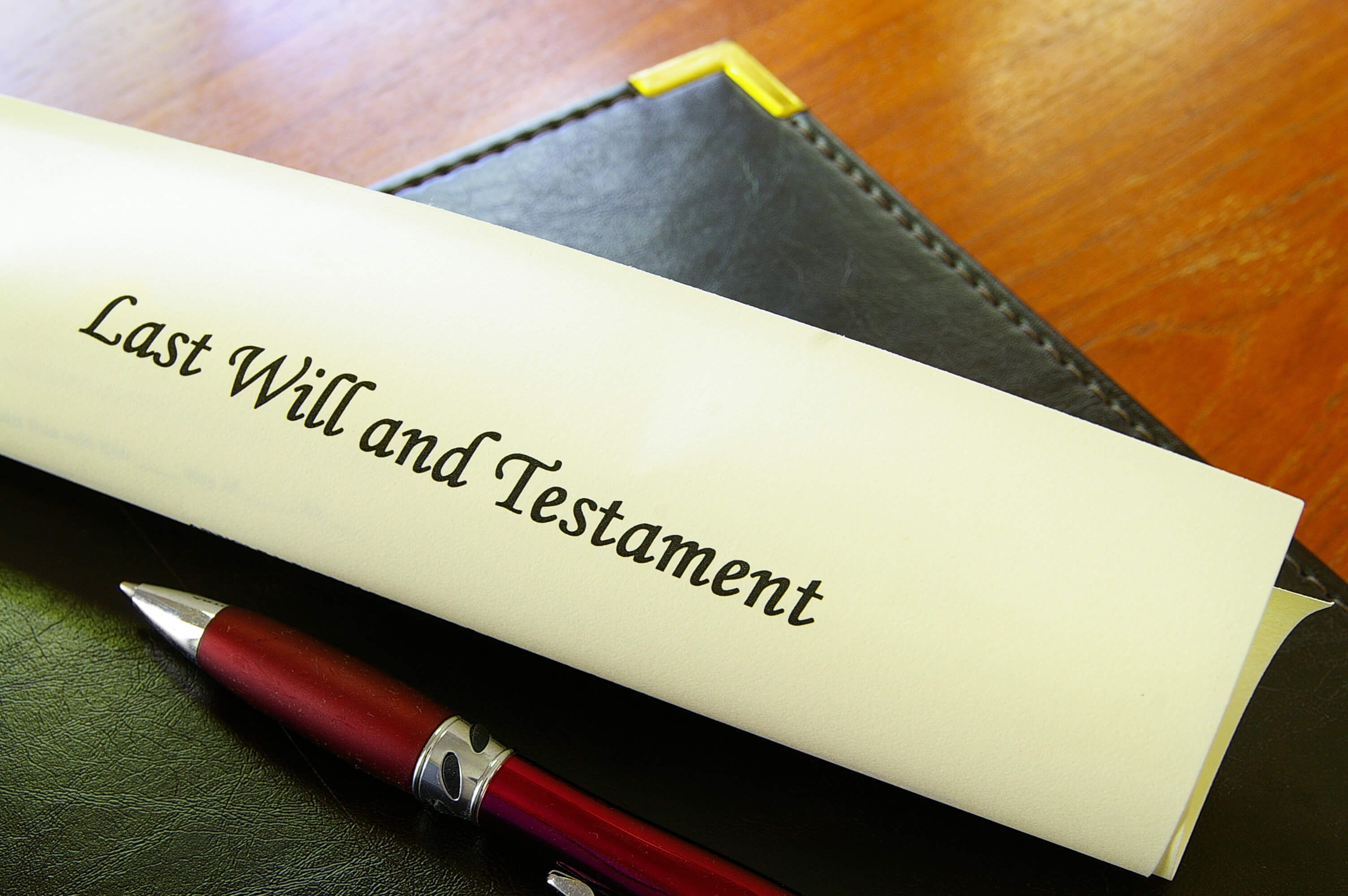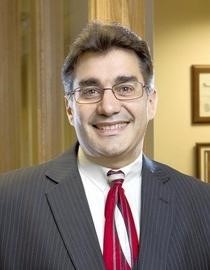Should you leave your kids an inheritance?
When children are young, parents need to safeguard them and ensure their well-being. But when they reach a certain age, do parents really still need to leave an inheritance for them rather than giving them the opportunity to be responsible on their own?

Well-known “money minds” have been debating this issue for years. Do children expect to have an inheritance left for them? Are children being raised to feel entitled to what parents have worked so hard to amass? As a parent, would you feel that you have failed or disappointed your children if you were to leave them nothing? If you left no inheritance for your children, would that sit well with you? There are basically only two schools of thought on this subject – Yes and No.
-Mark La Spisa
YES. Of course you should… Leaving an inheritance for your children is generally a good thing, not just for what it means to your kids, but also for what it represents to you, the parent.
Here’s what it could mean – You weren’t a burden. Many Americans are concerned about their financial security in retirement. You, on the other hand, took care of health care, debts and funeral arrangements, and had money left over for your children. That’s a win. You successfully navigated retirement, developed a strategy for “who would get what remained” once you were gone, and formalized that plan with the appropriate estate-planning documents. Yes, you even discussed your plan and rationale with your kids and continued to nurture those seeds of financial responsibility to help ensure that what you provided did more help than harm.
You lent a helping hand. From the moment they heard those words: “It’s a boy!” or “It’s a girl!” most parents have spent a great deal of time fretting about their kids’ success and happiness. In some small (or big) way, an inheritance could continue what you began decades earlier. For lots of parents who’ve assessed things and decided they were willing and able to assist their kids while they could still see the fruits of their generosity, leaving their children an inheritance makes perfect sense; it is a final act of parenting.
NO. This response hinges on the word “should.”… Do you have an obligation or a duty to leave your children an inheritance? Should you struggle to leave a sum of money for your kids if it means skimping on your own existence? We’ve all heard stories of older parents shortchanging their own actual needs to supplement their adult kids’ wants. This clearly happens in life (nearly 6 out of 10 parents are providing financial support to adult children no longer in school), as well as in death.
All of which is not to say that you shouldn’t leave an inheritance if you’re able.
According to a report from the Center for Retirement Research at Boston College, two-thirds of baby boomers are expected to receive inheritances. These aren’t Rockefeller-sized bequests; the median amount is an estimated $64,000. And even they are uncertain as the longer, healthier lives of parents eat up more of many nest eggs.
The most important thing parents can and should give their kids is a heads-up about whether or not an inheritance is likely to be headed their way. It can influence important planning decisions. If you know, for instance, that you’re likely to inherit a sizable sum, perhaps you’ll foot more of the bill for college knowing your own retirement will be supplemented. If you know a bequest is not coming, you can do the opposite. The bottom line: Talking – openly, honestly and at least sporadically – about future financial outcomes is a gift in and of itself.

How do the wealthy see it?… Bill Gates describes his intended bequest like this: “It will be a minuscule portion of my wealth. It will mean they have to find their own way. They will be given an unbelievable education and that will all be paid for. And certainly anything related to health issues we will take care of. But in terms of their income, they will have to pick a job they like and go to work.” Warren Buffet is very like-minded in stating that the perfect amount to leave his children will be “enough money so that they would feel they could do anything, but not so much that they could do nothing.”
These comments come from two of the richest men in the world. We have even seen other wealthy parents refuse to leave inheritance for their children, some choosing to donate their wealth to charity, citing that each generation should create their own wealth. Collectively, they want to teach their children self-sufficiency and want them to learn to work hard like they did.
Many parents spend lots of money, and invest in profitable assets, preparing their children for a better life after their own deaths, and we often hear quotes like, “We never know when we are going to leave this earth so it makes sense that we plan ahead, so that our kids are taken care of.” This is why parents tend to leave an inheritance for their family, and especially their children.
However, parents also express disappointment by the sense of entitlement many have noticed with some children when it comes to expected inheritances. It has reached a point where you will see kids from wealthy, as well as average working-class families not bothering to think about or plan for a future because they believe that they are set to inherit everything that will sustain them for the rest of their lives. That expectation fosters the attitude that they won’t have to work to attain those material things for themselves. What will they strive to achieve for themselves?
One of the most common themes among parents is a desire to see their children make it on their own. Over 90% of these parents are first-generation wealth builders, meaning they didn’t inherit their money but accumulated it from saving, investing or building a business. They value hard work and frugality and feel that leaving a large inheritance to a child is more hurtful than helpful. Many of these first-generation millionaires also feel that accumulating wealth in the U.S. is very attainable with hard work, discipline and frugality, and those are the values they have hopefully passed on to their children.
As we have heard from some of our clients, who seem to be very comfortable with “conditional” gifts, Barbara L. tells us that “I don’t agree when some people just barely live so that whatever money they have accumulated will be left for their children. My friend’s brother was very frugal all of his life. Upon his demise a very large estate was left to his 38 year old son who now hasn’t worked for 4 years. He’s not setting a good example for his two young children and stepchildren.”
Joann J. suggests “Yes, you should (leave an inheritance) as long as you can maintain a comfortable life style (for yourself) and still save the money for the kids.” As Carl M. writes, “If you cannot provide for your own retirement AT A REASONABLE LEVEL, then you should not,” and continues…“I think that it is however OK to leave an inheritance that is less than 100% of the assets at your death and with specific instructions as to how and when the kids can use it – this is not a carte blanche deal!”
Veronica F. writes, “Both my husband and I believe that it is OK to leave an inheritance to your children. However, we will make it clear to our child that whatever is left in the estate will be yours; but, you will not have access to it until age 50 or so. In that way your child still needs to establish their life, work for it, invest and save their own money. The inheritance then is just the whipped cream on the cake.”
-Mark La Spisa
Throughout the commentary our clients have offered on this subject, inheritance has become synonymous with “whatever is left over”… No one seems to be opposed to the idea of inheritance, but many share the attitude that Barbara L. states “Retirees should enjoy the fruits of the money they have earned”. As John B. says, “Let them do what they want with what they get, (but) only after both parents pass (on).”
Veronica and Terry F. tell us, “When we retire, we do plan to enjoy those things in life that we put on hold until retirement.” Pat and Don S. describe it this way, “The savings we have generated is for our benefit. We have not specifically saved to make our children’s life easier, but ours. Whatever is left is for their benefit.”
As Karen & Bob A. remind us, “None of us can be sure what the future will bring, what our health will be like, how the stock market will hold up, or how long our money will last. If there’s something left over after we are gone, beyond what we gave them, we’re sure they will use it wisely and appreciate it immensely. Are there any promises or guarantees? No! Are there any expectations on their part (and we’ve discussed that)? None! Personally, we hope there is something left that will help make their lives just a little bit easier and allow them to ‘pay it forward’ to their kids and grand-kids.
“(Another) way is for us to help – key word is HELP – pay for our grandchildren’s college educations. This not only helps our grandchildren, but also helps our children, by lessening the burden of the extremely high cost of education today. Removing that burden from a young person’s life, which will enable them to start out both their career and personal lives without debt, may be one of the most meaningful gifts we can give our children and grandchildren. Our parents helped us with the college costs for our two children and they were both able to start their lives debt free.”
As Dorothy N. remembers, “Our parents were not able to leave us a lot; however what they left helped us to start our boys’ college educations. Our intention is to leave them an inheritance to afford a good life and to be there for their family.”
Another favored alternative to the inheritance question is to use one’s assets to benefit the family during “the time we are still alive”. Karen and Bob A. describe family vacations they pay for “to bring our children and grandchildren together once a year. In this time, when kids move far away from each other, we feel it’s important to get them all together at least once a year so they can all continue to know one another in person.”
 The Vermillion Viewpoint
The Vermillion Viewpoint
There are no right or wrong answers to the question of inheritance.
Every situation is unique. As an advisory staff, our job is to help you determine if leaving an inheritance is feasible, and in keeping with your own financial goals. One problem we work hard to avoid is the retirees’ tendency to hold back and not spend for themselves in order to save more for their children. Leaving an inheritance should not be detrimental to your own quality of life.
What are the circumstances and challenges of that life? Have your own needs been met? Have you taken advantage of your resources while you are best able to enjoy them? We will even discuss your financial bad habits since everything will affect the final disposition of your assets. As always there are many factors to consider, including your personal beliefs and values.
If your decision is to leave an inheritance, rather than the question of “how much?” we will encourage you to ask if these assets will be a positive and helpful gift to your children. Are you confident that your heirs can be successful stewards of this windfall, and properly manage their financial responsibilities? Will your assets be used as you intend and reinforce your values in your children?
Very often parents are unaware of various beneficiary procedures, so it will be our job to help you prepare for a successful and seamless transfer of wealth when the time comes.
If you choose not to leave an inheritance, our responsibility will then be to help you choose an alternative way to deliver your gifts to society as a whole. Together we can find an option that will be inspiring, beneficial, and most importantly, something that will honor your lifelong efforts and values.
Wishing you financial prosperity,
Mark
Note: The opinions voiced in this material are for general information only and not intended to provide specific advice or recommendation for any individual. Please remember that past performance of investments may not be indicative of future results. Different types of investments involve varying degrees of risk, and there can be no assurance that the future performance of any specific investment, investment strategy, or product made reference to directly or indirectly in this newsletter (article), will be profitable, equal any corresponding indicated historical performance level(s), or be suitable for your portfolio. Due to various factors, including changing market conditions, the content may no longer be reflective of current opinions or positions. Moreover, you should not assume that any discussion or information contained in this post serves as the receipt of, or as a substitute for, personalized investment advice from Vermillion Financial Advisors, Inc. To the extent that a reader has any questions regarding the applicability of any specific issue discussed within this newsletter to his/her individual situation, he/she is encouraged to consult with the professional advisor of his/her choosing. A copy of our current written disclosure statement discussing our advisory services and fees is available for review upon request.

